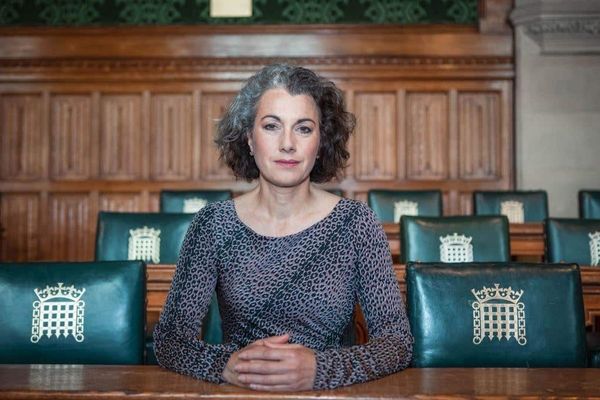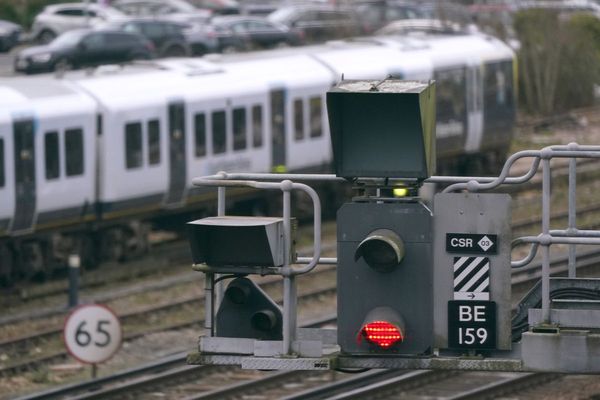
Two acts best to avoid: a) causing an economic crisis; b) mismanaging a crisis that’s already under way. With the biggest self-imposed economic policy failure of my lifetime, the government has committed both these policy crimes in just three weeks.
That’s convenient for those writing the “what not to do” chapters of economic textbooks, but far less good for the rest of us. Market mayhem has prompted political chaos, while spending cuts and mortgage hikes lie ahead. So should a reckoning with the fundamental mistake that has brought us to this: failing to recognise that economic context matters and that, with the arrival of higher interest rates, the context has changed.
On Friday, the prime minister dumped her chancellor and a second of the mini-budget’s tax cuts, as lower corporation tax joined the top rate of tax abolition in the policy dustbin. A government whose central argument was that lower corporation tax would drive growth now plans to raise it from 19% to 25% in April.
Why? Because Liz Truss had no choice, as unprecedented market focus on whether the government really had a credible plan for balancing the books met the political reality that Conservative MPs and the public won’t vote for another round of George Osborne-scale austerity. Meanwhile, the Treasury’s usual wheezes to ease the fiscal arithmetic are not available: you can’t pull a confidence trick after everyone has lost confidence in you.
Where does the latest U-turn leave the public and family finances? With only 45% of the tax cuts cancelled, there’s a reason the market reaction on Friday was not one of relief. The largest tax cuts in 50 years have been slimmed down but the biggest since the late 1980s remain. Combined with a gloomy economic outlook and the higher borrowing costs that spooked markets have imposed, this leaves Jeremy Hunt, the new chancellor, just two weeks to take some difficult decisions. Being able to show that debt will fall under the medium-term fiscal plan due on 31 October might require £20bn-£40bn of fiscal tightening.
Across Whitehall, a menu of unpalatable options is being prepared. Welfare cuts on the table go far beyond preventing benefits rising in line with inflation (which would save the Treasury £3bn but take the poorest families’ incomes back to lows not seen since the turn of the century). Public services, already struggling to pay for 5% pay rises when their budgets were set on the basis of 3% settlements, will be squeezed further. And the history of cuts in the 1990s and 2010s tells us that public investment spending will fall – it’s easier to give up on new railways than to fire nurses. Hunt should look at this list and conclude that more tax cut reversals are required.
Tax cut U-turns are also meant to stop interest rates rising quite as far, reducing short-term pressure on the Bank of England to hike rates to offset the fiscal boost, and reassuring markets, so they stop charging the UK what the economist Paul Krugman has dubbed a “moron risk premium”. Friday’s announcement has made some progress on the former and precisely zero on the latter.
We are about to go from thinking that 2% mortgages are normal to living with paying 6%. This will take time to feed through, as people flow off fixed-term deals, but the scale of the shock coming is hard to overstate: five million families are set for an average mortgage bill rise of about £5,000 by the end of 2024. That’s more than £26bn a year – an income hit equivalent to a 5p rise in the basic rate of income tax.
Supporters of the mini-budget note that most of these interest rate rises were coming anyway. They are right, but this is the case for the prosecution rather than the defence, illuminating the central error of judgment by Kwasi Kwarteng and Truss. The point at which advanced economies begin to wrestle with the incredibly difficult transition to a higher interest rate era is exactly the worst time to announce huge unfunded tax cuts.
That transition was always going to be messy. Rates are rising because inflation is too high and our economies, particularly the United States, are already operating at full capacity, so central banks react immediately to any fiscal boost with even higher interest rates. The end of our decade-long era of near-zero interest rates has profound implications, crucially because the flip side of the higher cost of borrowing is falling asset prices.
For households, the implications for house prices will dominate, but for financial markets the impact will be ubiquitous, as the price of everything from shares to bonds comes under pressure. The sheer speed of falls in the value of government bonds or gilts lay beneath the recent pension fund traumas and the adjustment to lower asset prices will put other parts of our financial systems under strain.
Rising rates also bring to the fore tensions for macroeconomic policymakers. That’s clear between fiscal and monetary policy, where the Bank of England’s rate rises translate into a higher debt interest bill for the Treasury. But it also creates problems for the Bank of England, given that its job is to keep inflation down (requiring rate rises) while maintaining financial stability (where rate rises can threaten instability).
All of these challenges lay ahead of us – and of other advanced economies – with or without the mini-budget, but the mini-budget has made the UK the poster-child for them. It has sped up our rate rises and switched off the crucial presumption of credibility that usually means financial markets treat developed economies such as the UK very differently from emerging ones. We have dragged the focus of those worrying that some governments might not find it easy to keep their public finances on a sustainable footing from the likes of Italy on to ourselves.
Not all publicity is good publicity in economic policymaking. And we have forced the Bank of England into emergency bond buying to protect pension funds and financial stability at exactly the point at which it wanted to be selling bonds to push down on inflation.
The government is also right to say that Putin and high gas prices lie behind many of our difficulties today. As an energy importer, that makes us far poorer as a country. But that is another reason for not creating huge uncertainty about your economic policy just when you’re relying on borrowing from abroad to fund the huge current account deficit that high gas prices require.
Financial markets were already watching nervously before the government engaged in the criminal policy mistakes of recent weeks. And you know when you definitely shouldn’t commit a crime? When the cops are already at the scene.
• Torsten Bell is chief executive of the Resolution Foundation







